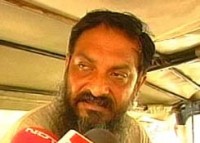Bounds of activism

Reprinted from the Hindu Sunday Magazine
MEDIA MATTERS
Sevanti Ninan
When internal security and human rights collide, as they increasingly will in a country with serious Naxal and militancy problems, it creates a challenge for the media. Where should it position itself? With how much conviction and persistence will it press for adherence to legal norms when the victims of police high-handedness are depicted as working against the State? And even if it does make up its mind, how much activism can it sustain when the victim is not conveniently in
As the new year dawns, three people in different parts of the country are languishing in jail. Binakayak Sen, the 1970s Vellore alumnus who has been working in the Chattisgarh area long before that State was formed, Govindan Kutty, editor of a Maoist publication called People’s March who was arrested on December 19, 2007 from a place near Kochi and lodged in a sub-jail in Alwaye, and Prashant Rahi who was a journalist for 17 years in the Uttarakhand region before being arrested in December 2007 from Dehra Dun (there are conflicting reports about the actual date.) Each of them is accused of Maoist involvement and the variety of Internet and newspaper reports on them reflect varying degrees of acceptance of this charge.
Kutty’s journal is online and makes no bones about the political philosophy it adheres to. Rahi was formerly with Himachal Times and with the Statesman but was described by the police as a Maoist commander, a charge which some media reports reject and others accept. They seized a laptop, which his daughter says did not even belong to him.
Sen was General Secretary of the Chhattisgarh’s People’s
His wife Ilina describes him as a human rights defender, which he was, and yes, both were critics of Salwa Judum, the controversial State government initiative of using tribal youth to combat Naxalism in Chattisgarh. Sen was arrested in mid-May 2007 and in December a Supreme Court bench heard his bail petition and denied him bail. Meanwhile a report in Tehelka says the medical facility he ran in Dhamtari has closed down.
Over the last eight months, journalists have travelled to
In Govindan Kutty’s case, the point raised by a fellow Kerala editor, N.P. Chekkutty, is, can he be arrested arbitrarily by Andhra Police in the State of
The reporting on Prashant Rai has been scarce, though thanks to his daughter working with Aamir Khan, there have been a few reports. Just a couple of days ago, the Hindustan Times quoted Himachal Chief Minister B.C. Khanduri: "It’s a coincidence that he was a journalist, but Rahi has been involved in activities detrimental to the nation’s security." Who is to investigate whether he was indeed involved in such activities? Does the burgeoning media in this country have an organisational mechanism for probing such arrests or do we take the State’s word for it?
Because, being arrested and dumped in jail in